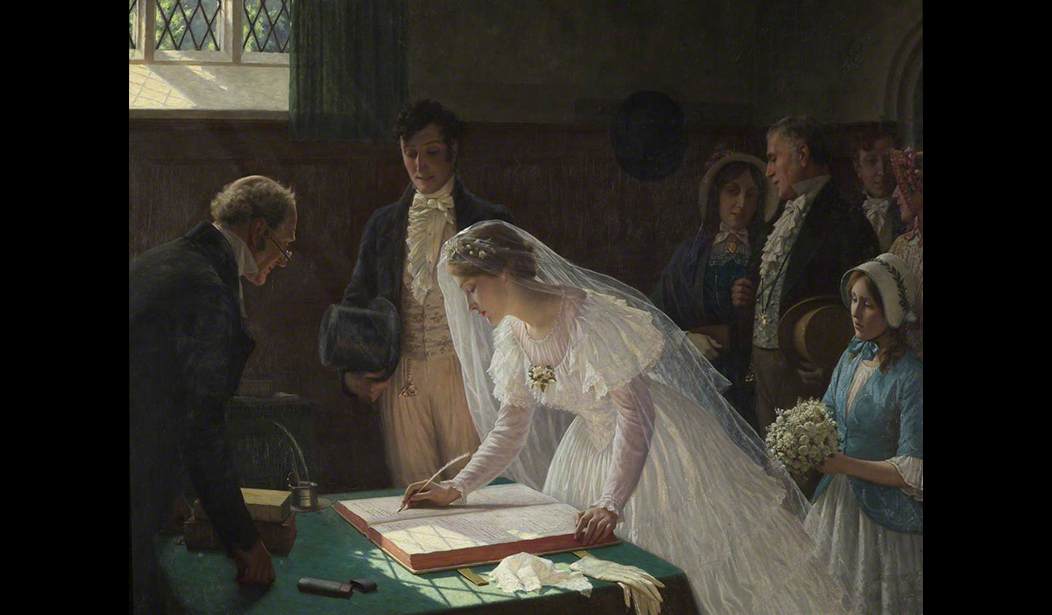Every person who crosses our path in life changes us in one way or another; they become a part of who we are. But no one has more effect on most people than their husband or wife, and having a good marriage is one of the keys to having a good, happy life. How we find a spouse has changed, but the basics have stayed the same. You get to know someone, a spark is struck, you get to know each other better, and eventually, one of two things happens: You spend the rest of your lives together, or at some point, you go your separate ways to try again. I've done both, and I am lucky enough to have found the woman I've been married to for 32 years, whom I love more than life itself. We got to know each other during Desert Storm, having served in the same Army medical company.
My parents met when they were very young, as both families lived in a small Iowa farm community and knew each other well. My wife's parents met when my father-in-law was frequenting a diner where my mother-in-law worked as a waitress, and as time went on he came by more and more often. People have traditionally made friends and met spouses in many ways - on the job, in church, and other social situations.
But it's always been a face-to-face thing. Now, the meetup app Bumble is pushing the idea that artificial intelligence (AI) can help people screen potential mates. Color me skeptical.
Dating is hard, but according to Bumble founder Whitney Wolfe Herd, artificial intelligence could help you find your perfect match.
The tech entrepreneur defended the dating app's AI feature on Thursday in San Francisco, even envisioning a future where a person’s virtual dating profile could handle the dating process for them.
"If you want to get really out there, there is a world where your dating concierge could go on dates for you with other dating concierges," said Wolfe.
"Then you wouldn’t have to talk to 600 people. It could scan all of San Francisco for you and say, 'These are the three people you really ought to meet.' So that’s the power of AI if harnessed the right way."
No. It's not. AI cannot duplicate or even approximate human behavior and preferences.
See Related: The 'Relationship Test' Plague Has to Stop
Humans are complex creatures. Ask any couple who have been happily married for many years not how they met but what made them fall in love, and likely as not you'll get an oddly vague answer: "It was love at first sight," or "We just struck a spark." As often as not we can't articulate a reason why our spouses suit us. Personally, I can name a few things I found attractive in my wife when we first met; I quickly came to admire her confidence, her competence, her courage, her intelligence, and her adamantine honesty. But those aren't things an AI can evaluate, and honestly, looking at our backgrounds - my wife was a kid from urban Baltimore, I was a farm-country kid from Iowa - and AI may never have matched us up.
No computer program can approximate the complexities of human behavior. The most sophisticated computer models imaginable are laughably crude compared to the complexities of human social behavior. And no AI can simulate or even approximate emotional responses, which are essential in building human relationships. It just isn't possible.
To all young people who may be reading this, I can only advise you not to do this. Some percentage of people meeting up using this technology may end up in happy relationships, and those will be ballyhooed by people trying to sell these programs, but I would be the most amazed man on earth if that percentage got out of the teens.
Get out of the apartment or house. Get into some face-to-face social situations. Church, clubs (not nightclubs but organizations based on interests), or sports - the what doesn't matter so much as the why, the why being to meet people in person, to engage in those complex human interactions that can lead to friendships - or love.
This seems appropriate.













Join the conversation as a VIP Member